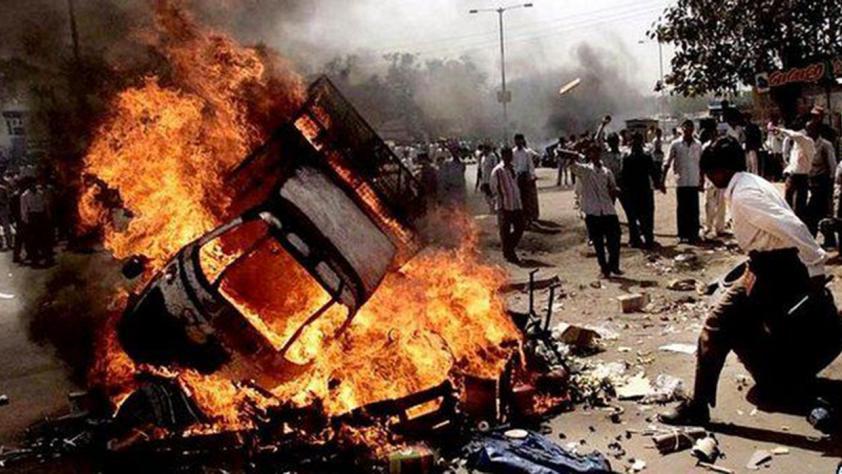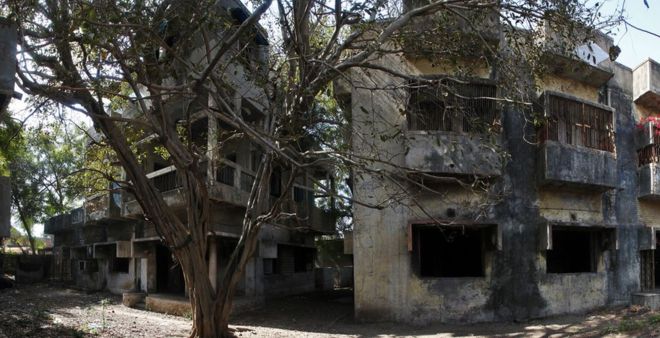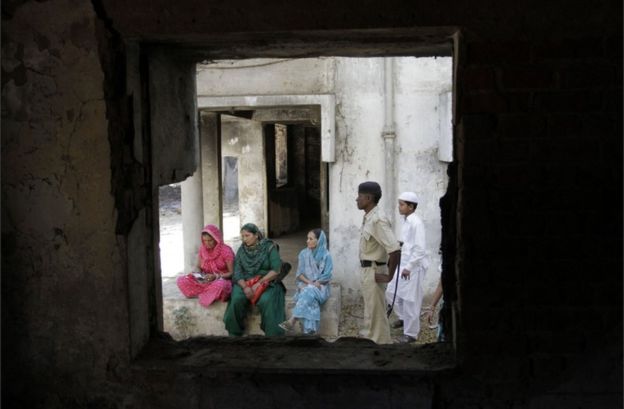Gujarat riots: India court convicts 24 over Gulbarg massacre
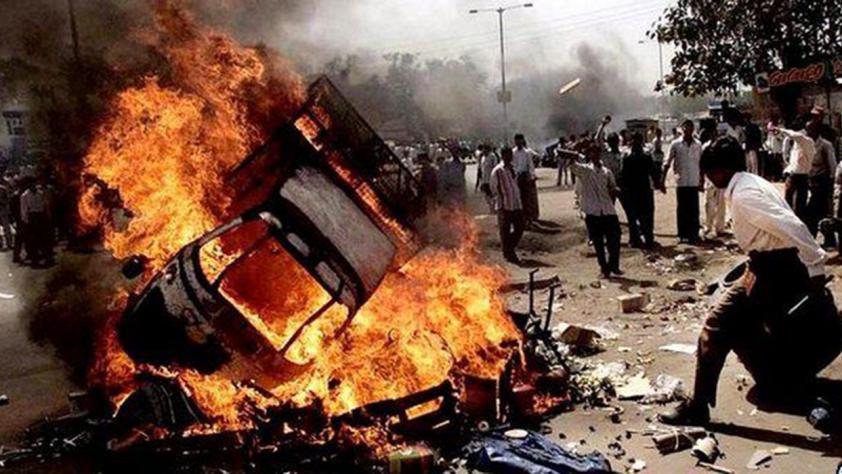
A court in India has found 24 people guilty of involvement in one of the most notorious massacres during the 2002 anti-Muslim riots in Gujarat.
The special court acquitted 36 others in the so-called Gulbarg Society killings in Ahmedabad city.
Activists and riot survivors have expressed "disappointment" and said they would challenge the verdict.
A mob attacked the Gulbarg Society complex, hacking and burning 69 people to death.
The riots were among the worst since Indian independence. More than 1,000 people, mostly Muslims, died after a train fire killed 60 Hindu pilgrims.
Muslims were blamed for starting the train fire, and Hindu mobs eager for revenge went on the rampage through Muslim neighbourhoods in towns and villages across Gujarat during three days of violence that followed.
Critics of Prime Minister Narendra Modi, who was the state chief minister at the time, say he did little to stop the riots.
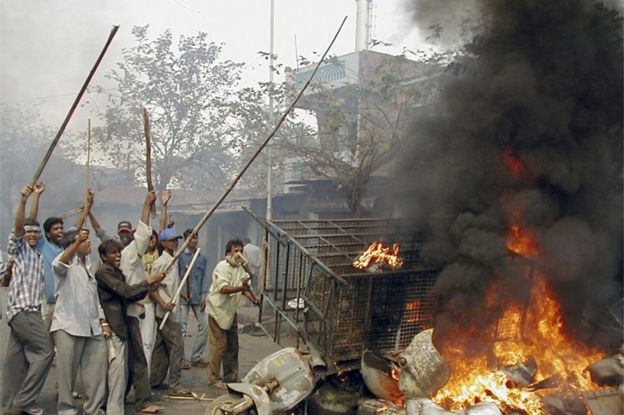
The Gulbarg residential complex in Ahmedabad was one of the targets where many Muslims were burnt to death and their properties set on fire.
On Thursday, 11 people were convicted of murder in connection with the attack, while the others were found guilty of lesser charges.
Among those convicted is a local leader of the hardline Hindu group Vishwa Hindu Parishad (VHP).
Sentencing is scheduled for Monday.
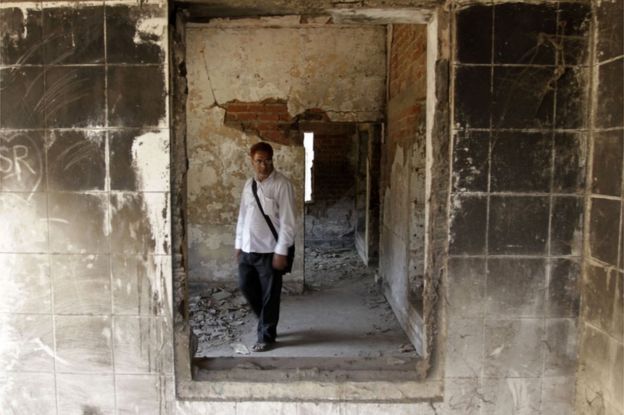
69 people died in the attack on 28 February 2002
Bungalows and flats in the society were looted and burnt
66 people were accused in connection with the massacre — six died before and during the trial and one is still being sought by police
The trial began on 7 September 2009
338 witnesses, including eight women, were examined
Grey line
Judge PB Desai said there was no evidence that the attack was planned and dropped charges of criminal conspiracy against the accused.
Ehsan Jafri, a prominent Muslim politician and a former Congress party MP, was among those killed.
Survivors of the Gulbarg massacre say he fired his gun in self-defence as the mob attacked the complex.
Zakia Jafri, the MP's widow, says her husband called Mr Modi for help but it never came.
After the verdict, Mrs Jafri said she was "disappointed" with the outcome, calling it an instance of "half justice".
Activist Teesta Setalvad, who was one of those who filed the case, said they would appeal the verdict in the high court and Supreme Court if necessary and would not give up their "struggle".
Mr Modi has always denied any wrongdoing and has not apologised for the riots. A Supreme Court panel also refused to prosecute him in 2013, citing insufficient evidence.
The violence was initially investigated by the Gujarat police and subsequently by an independent Special Investigation Team (SIT) appointed by the Supreme Court in 2008.
The Gulbarg massacre was among 10 key incidents in the riots being investigated by the SIT.
Some of these cases have brought convictions.
In August 2012, a court sentenced 31 people, including Maya Kodnani, an ex-minister and aide to the then chief minister Narendra Modi, to life for their part in murdering 97 people in Naroda Patiya, a suburb of Ahmedabad. Ms Kodnani was granted bail on health grounds in 2014.
In April 2012, a court sentenced 18 people to life imprisonment for the murder of 23 Muslims in Ode village in Anand district. Five others were given seven years and another 23 were acquitted.
In November 2011, a court sentenced 31 people to life in prison for burning to death 33 Muslims near Sardarpura village.
Политика конфиденциальности | Правила пользования сайтом
